Questionhello ma'am, why horses dont get struck by colic when they are set loose on pastures as horses graze limitless? why horses get struck by colic eating lot of grain?
AnswerHi Rohit,
Thank you for your question. There are different types of colic, each caused by different contributing factors. A torsion colic is the result of a twist in the large colon and is not always caused by nutritional factors...although certain conditions of the hind gut can certainly contribute in part to the risk. Impaction colic is the result of a blockage in the hindgut, generally at the cecal-ileal juncture of valve. The abrupt change in size from large colon to relatively smaller large colon can become blocked with masses of unfermented fiber. Impaction colic can be caused by dehydration, a horse's inability to ferment forage properly, a forage that is too mature for the horse to ferment or a combination of all of the above. Gas colic results from gas production in the cecum of the horse, and the gas is becomes trapped in the cecum causing severe discomfort in the horse. Gas colic is usually caused by improper fermentation in the hindgut where grain digesting bacteria (in the presence of starch) create gas as a by-product of their fermentation of food. Gas colic is often caused by undigested starch (usually from cereal grain in the diet) reaching the cecum where it is fermented by a less desirable bacterial population that creates gas. It can also be caused by poor bacterial populations in the cecum, even in the absence of starch. It is possible for horses to develop gas colic from grazing, especially if they have not been allowed enough time to become accustomed to new pasture and where pasture is extremely lush.
I hope that helps.
Thanks, Corlena

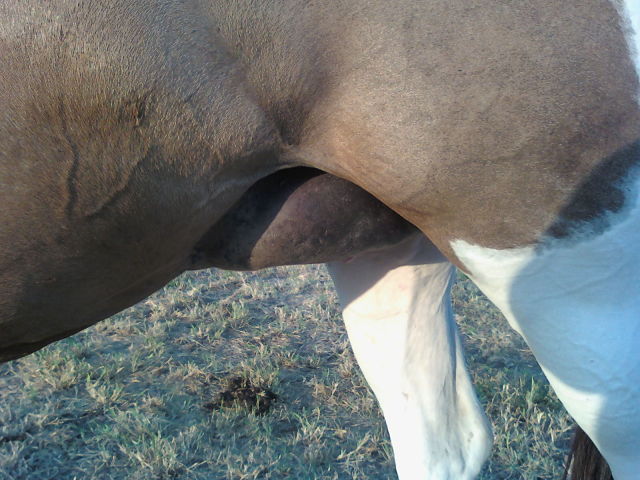 What could my horse be allergic to?
Question
Blue
I have a 14 year old paint mare that just
What could my horse be allergic to?
Question
Blue
I have a 14 year old paint mare that just
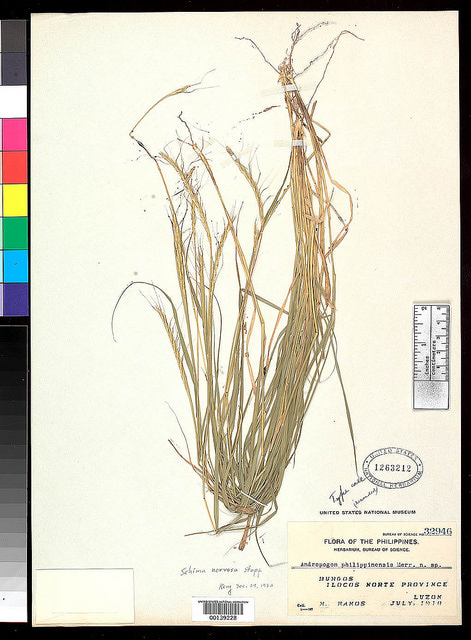 sehima nervosum hay for our horses - free choice
Question
sehima sehima 1
hi maam. present
sehima nervosum hay for our horses - free choice
Question
sehima sehima 1
hi maam. present
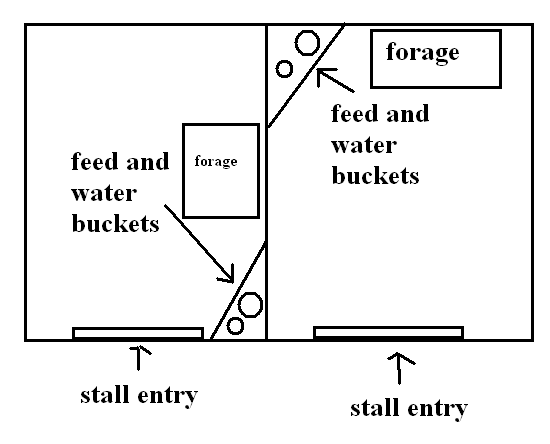 position for feed box, water bucket in the stall
Question
position for feed box,
hello, where should the
position for feed box, water bucket in the stall
Question
position for feed box,
hello, where should the
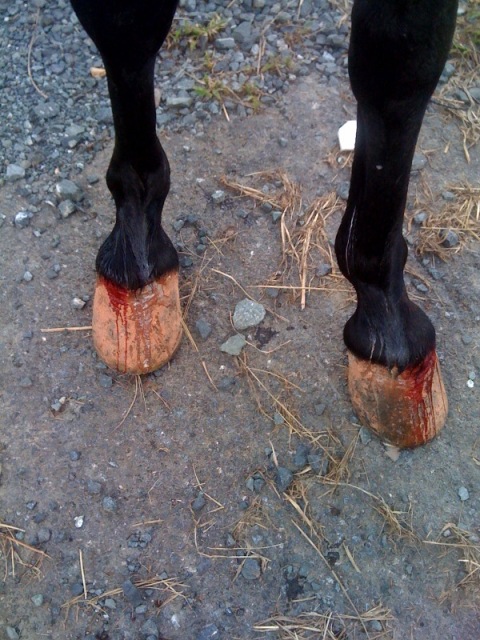 bleeding hooves
Question
bleeding
hi corlena! I have attached a photo s
bleeding hooves
Question
bleeding
hi corlena! I have attached a photo s
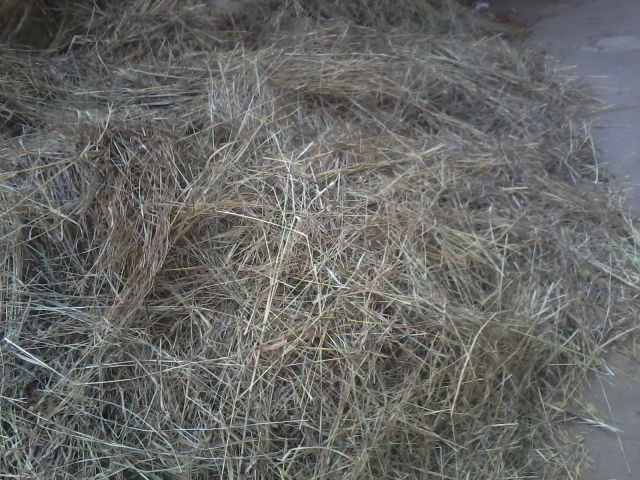 clover hay good in fiber or not
Question
kancha hay
hello maam. is clover hay ri
clover hay good in fiber or not
Question
kancha hay
hello maam. is clover hay ri